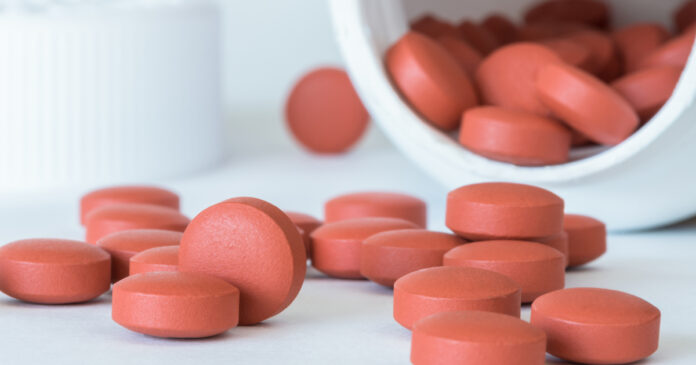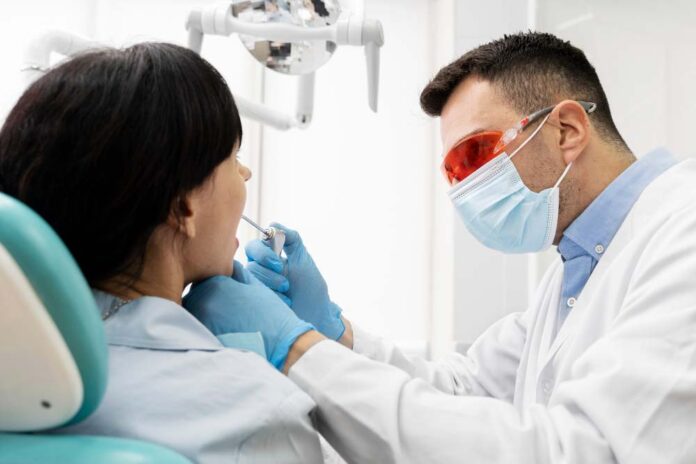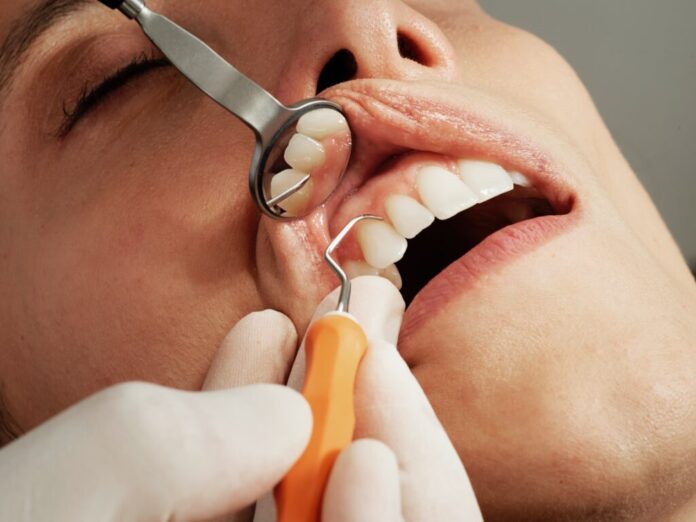Numbness in the mouth after a visit to the dentist is caused by the anesthetic used during the procedure. The anesthetic blocks the nerve signals that cause sensation, leading to a feeling of numbness which typically lasts for several hours after the procedure. The effects of the anesthetic depend on the amount used and the individual.
Even after the anesthetic has worn off, it could be some time before the feeling in the mouth returns to normal because the nerves may be temporarily irritated or damaged by the anesthetic. Sometimes it takes longer than expected for the numbness to dissipate, so it is essential to learn how to un-numb your mouth.
Below are some tips on how to achieve this.
Drink Plenty of Fluids
Drinking plenty of fluids helps to flush away any remaining numbing agents. This speeds up the process of feeling back in your mouth. Additionally, it will assist in keeping you hydrated, which can reduce any discomfort. Staying hydrated is essential for proper healing, and it can help to reduce any inflammation.
Take Over-the-Counter Pain Medication

Over-the-counter pain relief medications, like ibuprofen or acetaminophen, effectively reduce any pain or discomfort associated with the numbness. These medications reduce inflammation and lower any pain or irritation. Make sure always to read the directions and follow the recommended dosage.
Use a Cold Compress
Applying a cold compress like a cold washcloth, to the area of your mouth that is numb reduces the sensation. The cold reduces swelling, and the pressure stimulates feeling in the area. Cold compresses can also help to reduce any inflammation and can help to relieve itching or irritation.
Rinse Your Mouth with Salt Water
The salt helps to bring down any inflammation and increase circulation in the area, which speeds up the process of feeling in your mouth. Salt water can also help to reduce any bacteria in the mouth, which decreases any pain or irritation.
Practice Relaxation Techniques
Relaxation techniques, like progressive muscle relaxation or deep breathing cut down any discomfort associated with the numbness. This aids in reducing any tension or stress that may be contributing to the numbness. Relaxation techniques can also help to reduce any inflammation and help to reduce pain or irritation.
Eat Soft Foods
Soft foods like mashed potatoes, applesauce, or oatmeal, reduce any discomfort associated with the numbness. Soft foods are easier to chew and swallow and help to reduce any pain or irritation. Soft foods are also easier to digest, which can help to minimize any discomfort in the mouth.
Try Nerve Stimulation
Applying gentle pressure to the area of your mouth that is numb stimulates the nerves and increase feeling. This can be done by lightly tapping the area with your finger or using a cotton swab to massage the area. Stimulating the nerves increases circulation, which in turn reduces numbness.
Increase Vitamin B Intake

Increasing your Vitamin B intake reduces any numbness in your mouth. Vitamin B helps to increase circulation and reduce any inflammation that may be causing the numbness. Vitamin B can be found in foods such as eggs, leafy greens, and fortified cereals. Additionally, Vitamin B supplements are available to help increase your intake. This is one of the essential practices of how to un numb your mouth as it also improves your general health.
Use Over-the-counter Numbing Products
Over-the-counter numbing products such as Orajel or Anbesol lessen numbness. Orajel is a topical gel that includes things like benzocaine and menthol, which are anesthetics that help numb the area. Anbesol is an oral anesthetic that contains benzocaine and is applied directly to the gums. These products are available without a prescription and temporarily relieve the numbness.
Try Essential Oils
Applying essential oils, such as peppermint or eucalyptus oil, to the numb area of your mouth aids in reducing the sensation. The oils reduce inflammation and increase the area’s circulation. Essential oils can also help to remove any bacteria or infection that may be causing the numbness. The oils can also help reduce any discomfort or irritation associated with the numbness.
When to See a Doctor
If you follow these tips on how to un numb your mouth and the numbness persists for more than a few hours or if it affects your ability to eat, speak, or swallow, it’s essential to visit your dentist. The doctor will determine the cause of the numbness, provide treatment if necessary, and rule out any underlying medical conditions contributing to it. Your dentist may also use a topical anesthetic to reduce the numbness or give you additional medications for relief. Additionally, you should get immediate medical attention if you experience any other symptoms, such as pain, swelling, or difficulty breathing.

Prevention Tips
Several steps reduce the chances of your mouth becoming too numb after a visit to the dentist.
Informing Your Dentist about Medications or Supplements
This helps ensure that the anesthetic can be tailored to your needs and that you are not at risk of any adverse reactions. This includes any over-the-counter drugs, herbal supplements, and prescription medications. Provide your dentist with a list that includes the dosage and frequency of the medicines.
Following Pre-Operative Instructions
This may include avoiding certain foods and drinks, abstaining from smoking, and avoiding certain medications. Following these instructions reduces the risk of numbness and other potential complications.
Using a Lower Dose of Anesthetic
Ask your dentist to use a lower dose of anesthetic during the procedure. This minimizes the chances of your mouth becoming overly numb and reduces the amount of time it takes for the numbness to wear off.
Letting Your Dentist Know if You Are Prone to Numbness
If you are prone to numbness after dental procedures, let your dentist know so they can monitor you for any adverse reactions. This is especially important if you have had any prior reactions to anesthetics.
Taking Breaks during Long Procedures
If you are undergoing a lengthy dental procedure, it is essential to take breaks to give the body a chance to recover from the anesthetic. This will reduce the risk of your mouth becoming overly numb and shorten the duration of any numbness you may experience.




